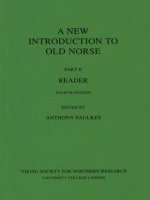Grammar terms part II
Bạn đang xem bản rút gọn của tài liệu. Xem và tải ngay bản đầy đủ của tài liệu tại đây (8.39 KB, 1 trang )
Grammar Terms – Part II
Dialect
The label dialect refers to any distinctive speech variety associated with the people of a particular region (regional
dialect) or a social group (social dialect). English has a number of regional dialects. The English spoken in
London, for example, is somewhat different from the English spoken in New York or Chicago.
There are also plenty of social dialects. A taxi driver, for example, does not speak like a school teacher. Even
standard English is merely a dialect of English, but it does enjoy a very special status.
Direct question
A direct question is a sentence which has the form of a question expecting an answer.
Examples are:
What are you doing?
What is the capital of South Africa?
Are you going to Susie’s birthday party?
Discourse marker
A discourse marker is a word or a phrase which serves chiefly to keep a conversation flowing smoothly. Examples
are: yes, so, of course, nevertheless, well etc. A discourse marker is only weakly linked to an adjoining sentence.
Sometimes it is not linked at all.
Double negative
Any grammatical construction in which two or more negative words appear in a single clause. Double negatives
are common in most vernacular forms of English, but it is considered inappropriate in standard English.
Note that a double negative is not equivalent to a positive. For example, the sentence ‘I didn’t say nothing’ does
not mean that ‘I said something’. It merely happens to be a non-standard, yet familiar and understandable way of
saying ‘I didn’t say anything’.
Stay on top of your writing! Download our grammar guide from www.englishgrammar.org to stay up-to-date.
Powered by TCPDF (www.tcpdf.org)









